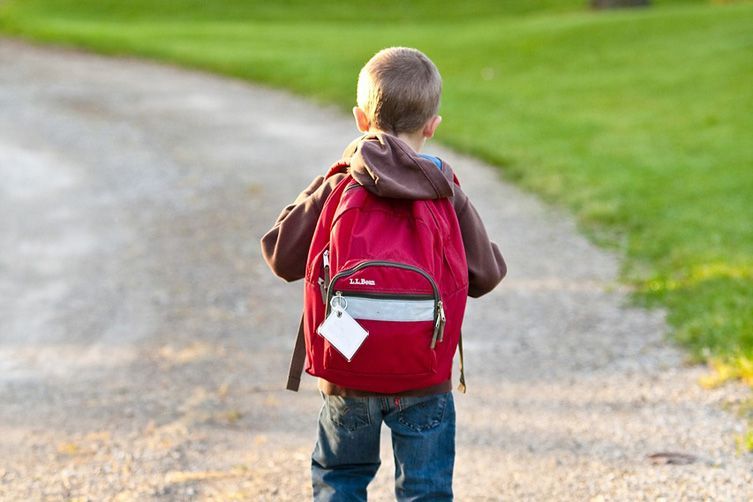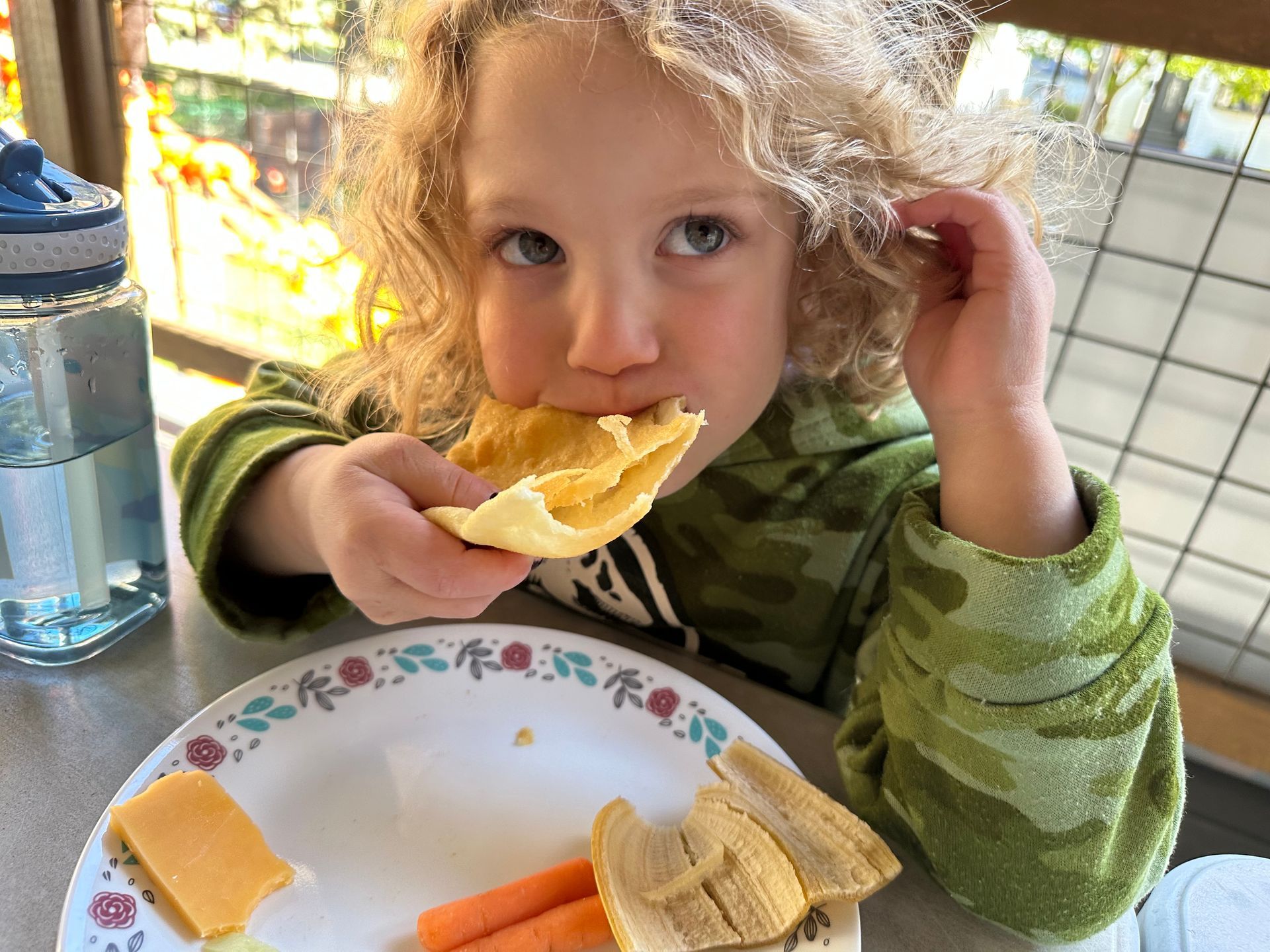The Importance of Interdependence
by Roxy Krawczyk, M.A. Ed.
When it comes to raising young children, we talk a lot about developing independence. And rightly so — the period from birth to age six is an especially critical time for developing physical, mental, and emotional self-reliance. These are the years when children learn to move independently, to care for their own bodily needs, to express and resolve big feelings.
But what about
interdependence? Though it may not be talked about as much, this social dynamic is critical to developing sustainable health and happiness.
So what is interdependence, and why does it matter?
Interdependence is a state of being interconnected with others. Living in a state of interdependence means that our individual well-being is influenced by or dependent on the well-being of the people around us. This is in contrast to a state of independence in which we are entirely self-reliant, and our well-being is
not influenced by the people around us.
Independence is not a bad thing. Generally speaking, our goal is for our children to grow into self-supporting adults. We want our kids to be able to function independently.
But we also don’t want them to stop there. We want our children to recognize the importance of interdependence. We want them to build mutual, reciprocal relationships with the people in their lives.
Why?
Because living and working cooperatively makes us healthier, happier, and more successful. Hundreds of studies have demonstrated that positive interdependence (i.e. cooperation) tends to result in higher achievement and productivity, more positive interpersonal relationships, and greater psychological health (Johnson, 2001). And not only are these benefits important for each individual, they also contribute to the overall health, wellness, and success of our collective.
So how do we teach our children the importance of interdependence? And how do we help them build the skills they need to develop healthy, cooperative relationships?
We talk about it, we practice it together, and we model it in our own lives.
Highlighting moments of interdependence that already exist in your child’s everyday life is an easy place to start. You can chat about things like group projects at school, team sports, or cooperative work at home like chores and meal prep.
Help your child to process these experiences by asking them questions: How do they feel about working with other people? What do they enjoy about a particular group activity? Is anything challenging? Follow your child’s cues, validate their feelings, and help them to empathetically problem-solve any issues that may arise.
Speaking of chores and meal prep, involving your child in cooperative household activities has a wide range of benefits. It develops practical life skills and self-confidence, both of which are key to future independent success. And just as importantly, it also offers regular opportunities for your child to contribute to the family’s goals through meaningful interdependent work.
Encourage your child to ask for help when you notice that they need more support with a task or project. Brainstorm with them about who might be a good resource. You can even help them make the request if needed.
Remember to talk about your child’s strengths and talents, too! Highlight moments when they are able to offer support to a friend or family member. Reflect with them on how it feels to be able to help someone else.
Use moments when you need assistance with something to verbalize your thinking out loud. This can be as simple as, “Gee, I’m really having a hard time with ____. I think I’ll ask ____ for some help.” Demonstrate the ways in which you work cooperatively with other people in your own personal and professional life.
Modeling is a very powerful tool. Acting with mutual support in our adult relationships — especially the ones our kids see every day, such as those between parents, caregivers, and educators — will naturally lead our children to build similar relationships in their own lives.
While developing independence is undoubtedly important for young children, it is never too early to also begin fostering interdependence. Children as young as 1 year old can learn to ask for help, participate in cooperative activities, and absorb relationship modeling. Helping our children to build the skills for both independence
and interdependence will help set them up for long-term health, happiness, and success.
References
Conley, Courtney. “Growing beyond Independence: The Benefits of Interdependence.” Psychology Today, Sussex Publishers, www.psychologytoday.com/us/blog/your-daughter-doesn-t-have-be-miserable/ 202202/growing-beyond-independence-the-benefits. Accessed 16 Oct. 2023.
Johnson, D. W., and R. T. Johnson. “Cooperation and Competition, Psychology Of.” International Encyclopedia of the Social & Behavioral Sciences, 2 Nov. 2002, www.sciencedirect.com/ science/article/abs/pii/B0080430767017988?via%3Dihub.
Spendelow, Jason. “Interdependence: The Meaning and the Advantages.” The Practical Psychologist, The Practical Psychologist, 29 Aug. 2023, thepracticalpsych.com/blog/interdependent-meaning.
About the Author
Roxy Krawczyk is a Montessori teacher, educational consultant, and freelance writer. She holds Montessori certifications in both early childhood (AMS) and adolescent (AMI) education, as well as a Master of Arts in Education from St. Catherine’s University. Roxy has ten years of experience teaching in the classroom and has spent the last five years working as an educational consultant for early childhood programs. Prior to her work in education, Roxy earned a B.A. in English from Vassar College and was an editorial assistant in non-fiction book publishing. She loves using her passions for education, research, and writing to help parents gain new insight and tools for the ever-changing job of raising small humans.






